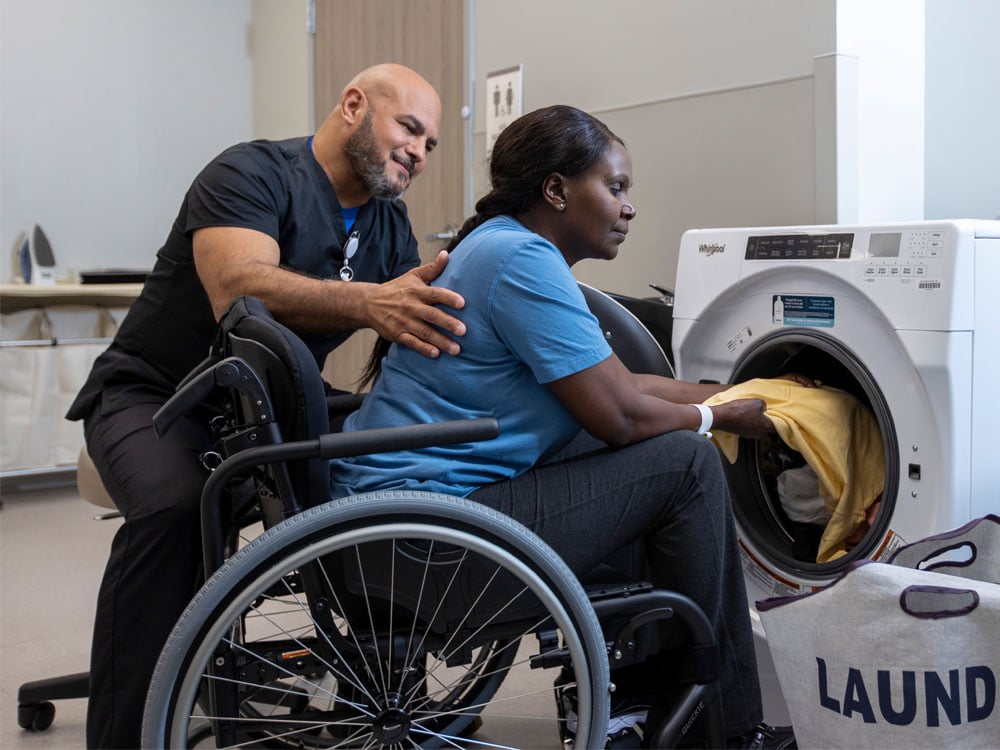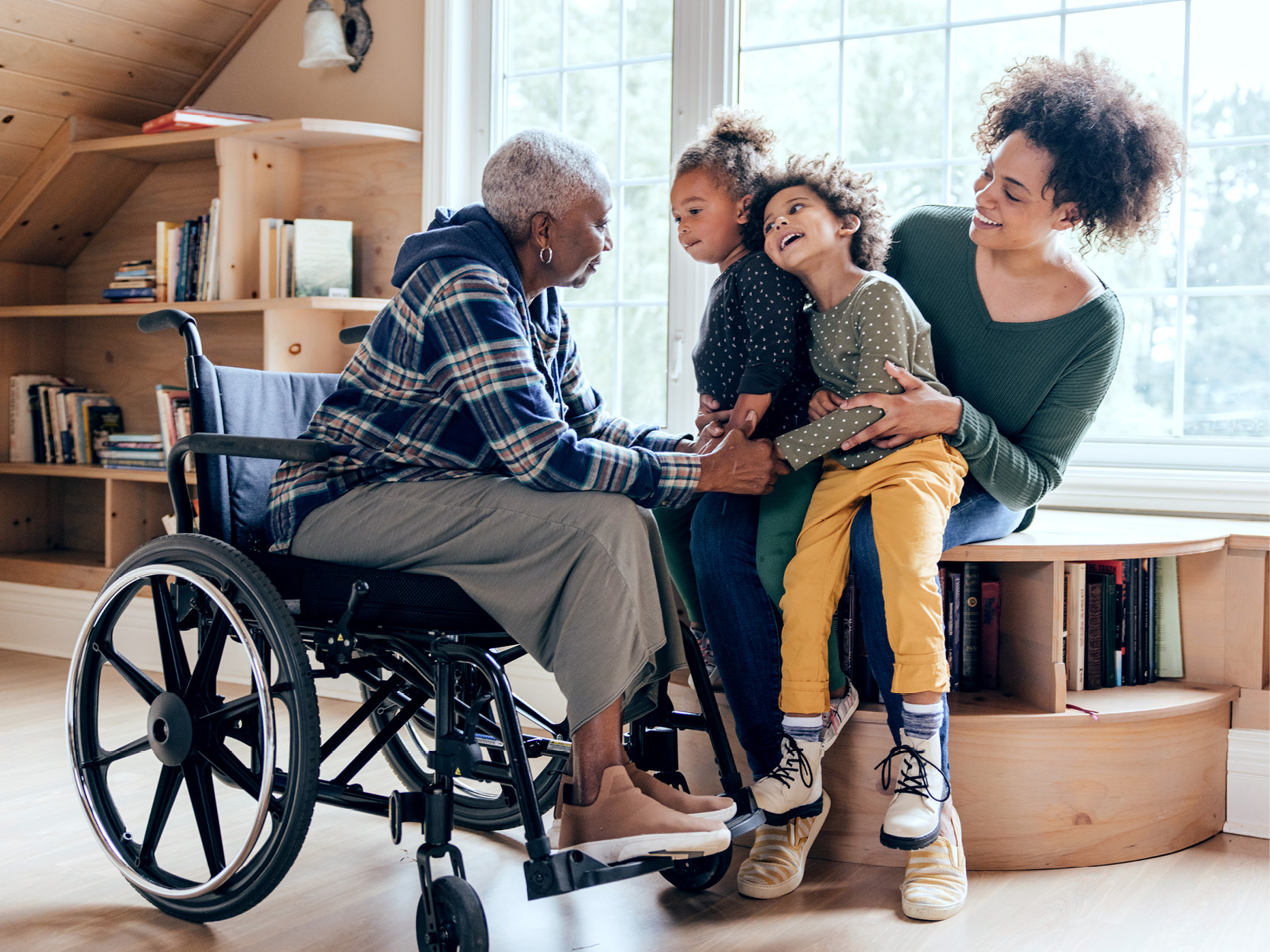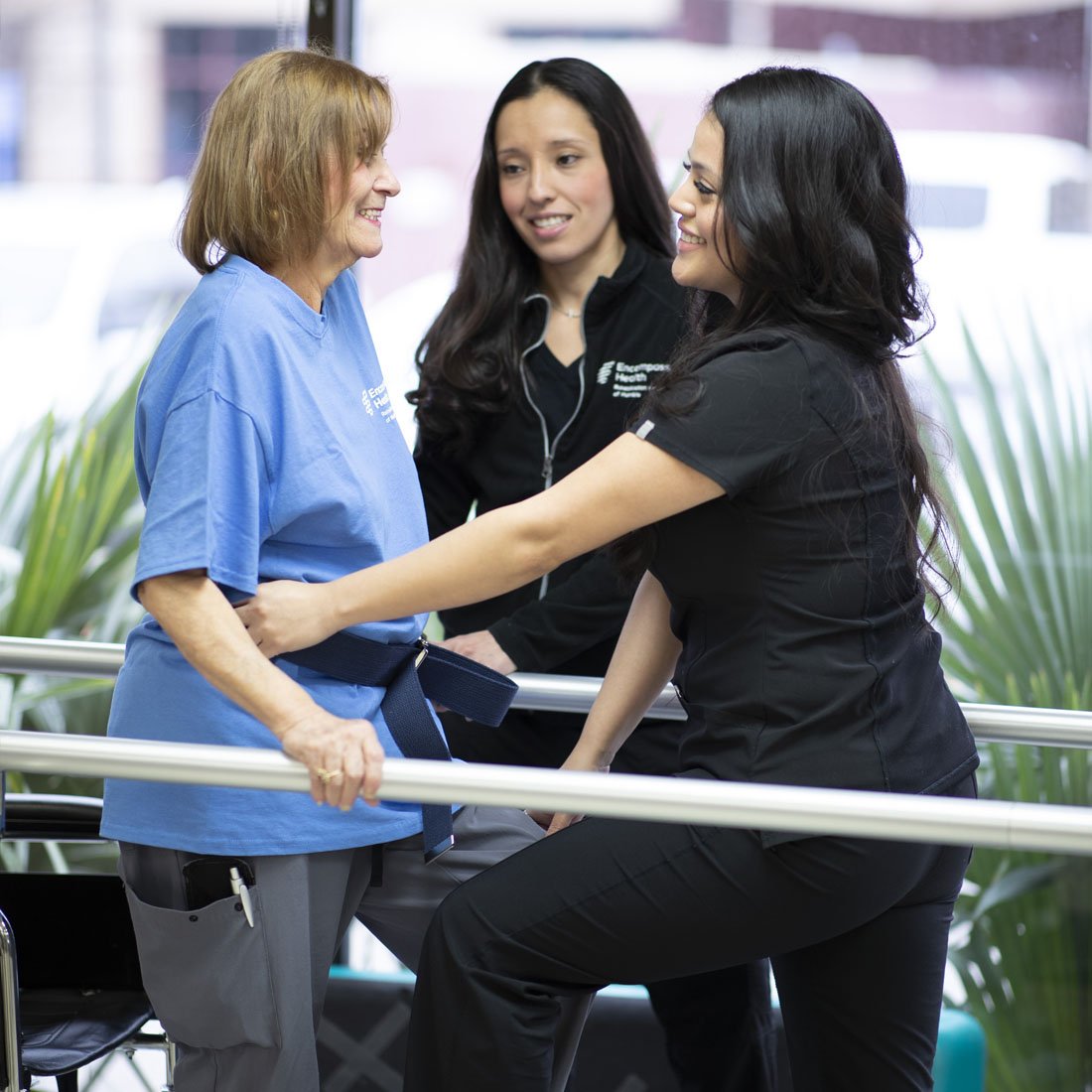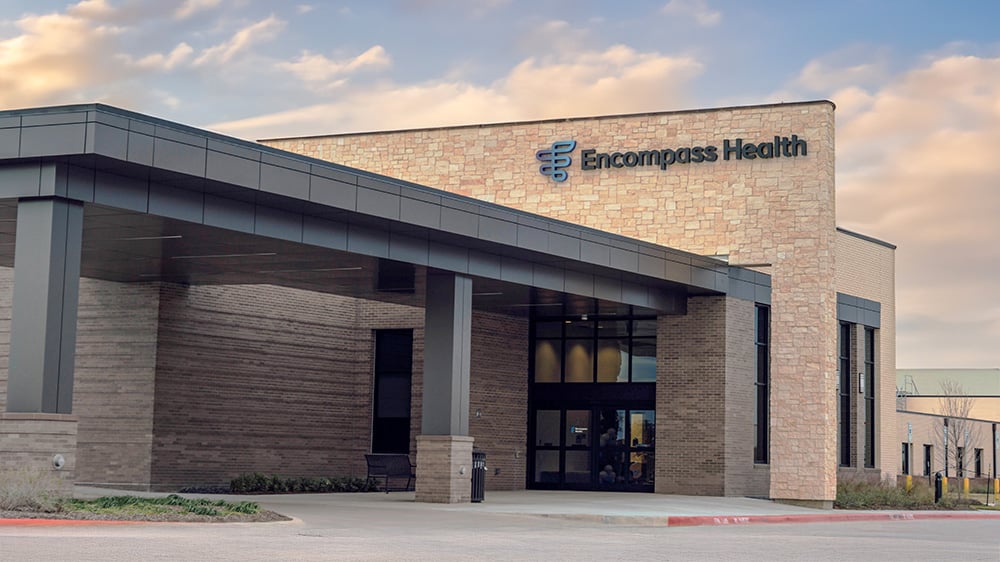Get started with activities of daily living
After a serious illness or injury, everyday tasks like bathing, dressing and eating – activities of daily living (ADLs), may feel challenging. That’s why our team of therapists, nurses and doctors work closely with you to create a personalized care plan. We start with basic self-care skills and build up to more complex tasks called instrumental activities of daily living (iADLs), such as cooking, managing medications or using technology. Regaining the ability to care for yourself not only helps you stay physically healthy—it also boosts your confidence and supports your emotional well-being.

Supporting your lifestyle and goals
We know that no two people are the same. That’s why we tailor your therapy to fit your needs, abilities and lifestyle. Whether you want to return to work, care for a pet or simply enjoy cooking at home, we’ll help you build the skills and strength to get there.
By regularly practicing daily activities in a safe, supportive environment, you can reduce your risk of complications like pressure sores or muscle loss while gaining more independence every day.


What conditions can benefit from ADL-focused therapy?
Our REAL Therapy® program helps patients practice everyday tasks in realistic settings—like mock kitchens, bedrooms and laundry areas. It’s especially helpful after conditions that affect movement, memory, strength or coordination, such as:
- Stroke
- Spinal cord injury
- Traumatic brain injury
- Parkinson’s disease
- Amputation
- Multiple sclerosis
- Burns

What are ADLs and iADLs?
Activities of daily living (ADLs) include:
- Bathing
- Dressing
- Eating
- Toileting
- Grooming
- Oral care
Instrumental activities of daily living (iADLs) include:
- Preparing meals
- Managing medications
- Using the phone or computer
- Driving or getting around town
- Handling money
- Doing laundry and home chores
The Encompass Health difference
Experience that matters
As the largest network of inpatient rehabilitation hospitals, we have the experience and access to the latest treatments and technology to help you recover more quickly and effectively.
Compassionate care
Your rehabilitation is not just about physical recovery. It's about you as a person. Our multidisciplinary care team will provide unwavering support and give you the strength, skills and confidence needed to regain your highest level of independence.
Exceptional results
Intensive therapy works. At our hospitals, you will receive three hours of therapy per day, five days a week, along with frequent visits from your physician and 24/7 nursing care. This combination is designed to help you achieve the best possible recovery.

Your care team

ADL FAQs
ADLs are basic tasks that help you care for yourself. These include eating, dressing, bathing, grooming and using the toilet. Your occupational therapist will help you improve your independence in these areas.
